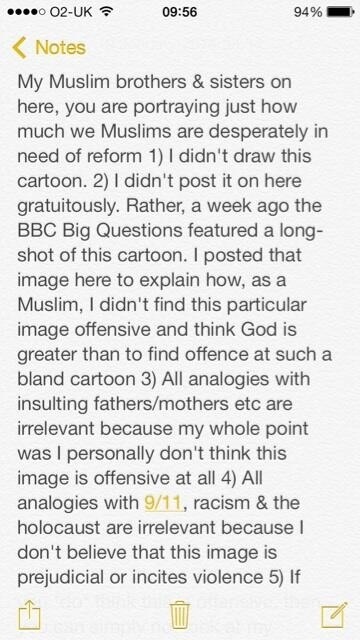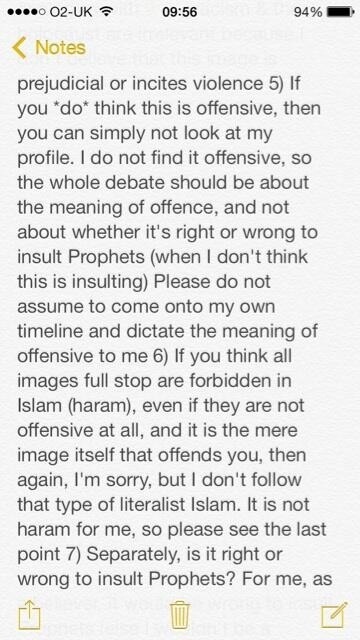Cristina Odone wrote a horrible reactionary piece for the New Statesman the other day about the way the totalitarian liberals are crushing the rights of religious believers. It reads as if she’s been watching too much Fox News.
My findings were shocking: not only Christians, but also Muslims and Jews, increasingly feel they are no longer free to express any belief, no matter how deeply felt, that runs counter to the prevailing fashions for superficial “tolerance” and “equality” (terms which no longer bear their dictionary meaning but are part of a political jargon in which only certain views, and certain groups, count as legitimate).
See what I mean? Hateful. Scorn for what she calls ‘superficial “tolerance” and “equality”’ which turns out to mean basic equal rights. Scorn for that and lashings of sympathy for “deeply felt beliefs” that conflict with basic equal rights. She goes on to spell out what she means.
Intolerance is no longer the prerogative of overt racists and other bigots – it is state-sanctioned. It is no longer the case that the authorities are impartial on matters of belief, and will intervene to protect the interests and heritage of the weak. When it comes to crushing the rights of those who dissent from the new orthodoxy, politicians and bureaucrats alike are in the forefront of the attacks, not the defence.
I believe that religious liberty is meaningless if religious subcultures do not have the right to practise and preach according to their beliefs. These views – for example, on abortion, adoption, divorce, marriage, promiscuity and euthanasia – may be unfashionable. They certainly will strike many liberal-minded outsiders as harsh, impractical, outmoded, and irrelevant.
But that is not the point. Adherents of these beliefs should not face life-ruining disadvantages. They should not have to close their businesses, as happened to the Christian couple who said only married heterosexual couples could stay at their bed and breakfast. They should not lose their jobs, which was the case of the registrar who refused to marry gays.
It’s the familiar game – turn everything upside down, so that the real human right is not the right to be treated equally but the right to refuse to treat other people equally.
Yes, as a matter of fact, people should have to close their businesses if they refuse to treat all customers equally. Would Odone like it if someone at a hotel desk turned her away because only non-Catholics could stay at that hotel? I doubt it. If your business involves serving the public, you don’t get to exclude sections of the public you dislike.
Yes, as a matter of fact, people should lose their jobs if they refuse to do them. It’s not a registrar’s job to decide who can be married. Religious liberty does not include obstructing other people’s liberties and rights.
She goes on to say that religious believers should fight back.
Can the decline in the social and intellectual standing of faith be checked, or even reversed? Yes. Ironically, believers can learn from those who have come to see themselves as their biggest enemy: gays.
…
Practising Christians, Jews and Muslims should also step forward into the limelight, dismantling prejudices that they must be suspect, lonely, losers. Believers should present themselves as ordinary people, men and women who worry about the price of the weekly shop and the size of the monthly mortgage. They should not appear to be religious zealots or gay-bashers or rabid pro-lifers. They should reassure critics that religious people are not a race apart – but just happen to cherish a set of ideals that sometimes places them at odds with the rest.
Let outsiders see the faithful as a vulnerable group persecuted by right-on and politically correct fanatics who don’t believe in free speech. Let them see believers pushed to the margins of society, in need of protection to survive. Banned, misrepresented, excluded – and all because of their religion? Even the most hardbitten secularist and the most intolerant liberal should be offended by the kind of censorship people of faith are facing today.
Except that it’s not censorship. Here’s Odone herself, going on at great length in of all places The New Statesman, which seems to share her bizarre conviction that religion is A Victim.
She sounds almost fascist in places.
Equality is already becoming the one civic virtue universally endorsed; equality legislation, the overriding principle of law. In this new scenario, yesterday’s victims are today’s victors. Gays and women, among other scapegoats from the past, now triumph over their former persecutors. But they have learned no lesson from their plight.
Does anyone else find that intensely creepy? We “now triumph over [our] former persecutors”? Wtf?
It’s the voice of angry privilege at its most threatening. I do not like it.
(This is a syndicated post. Read the original at FreeThoughtBlogs.)













